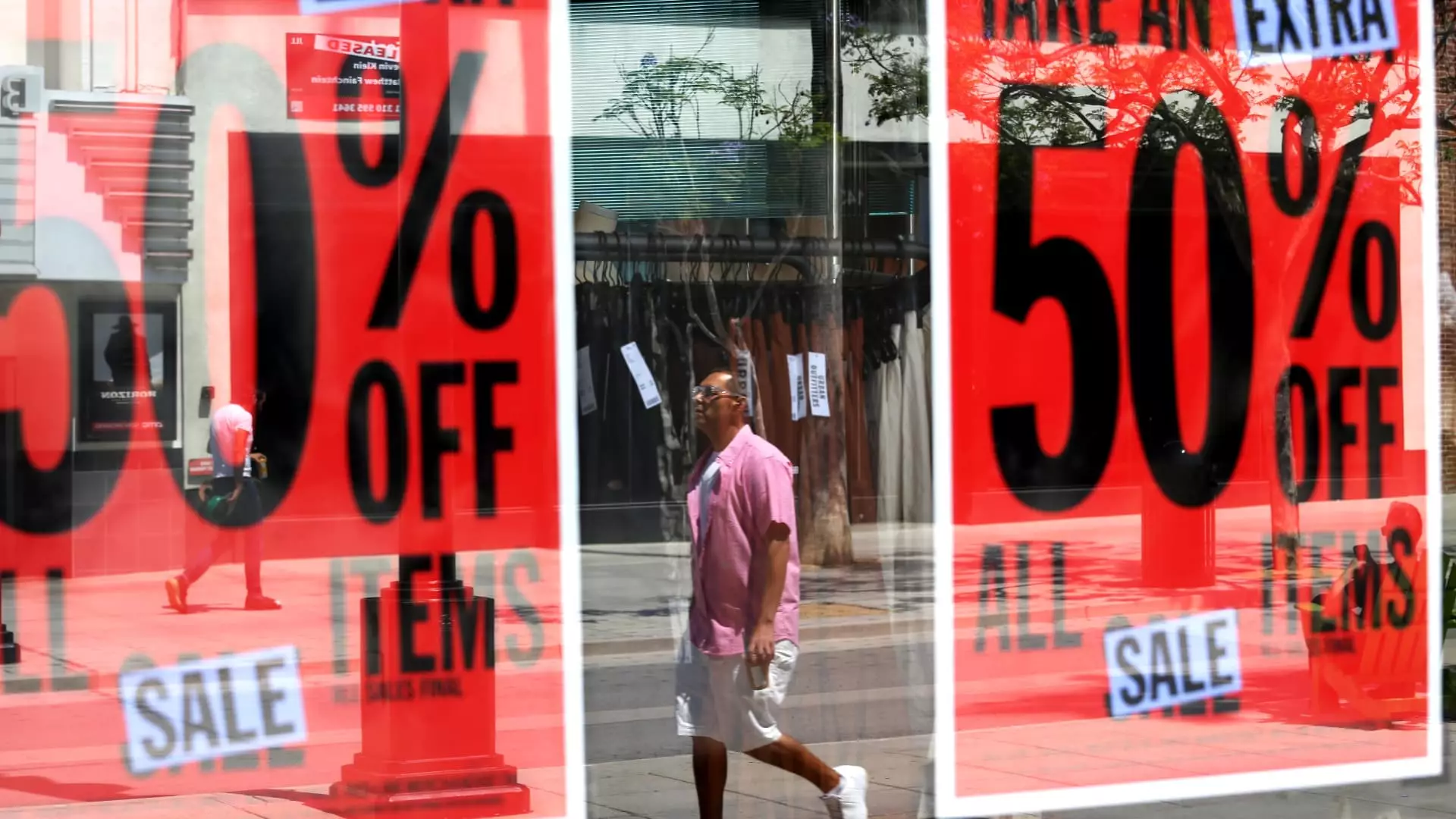As the retail landscape continues to shift under the weight of Donald Trump’s trade policies, some retailers are engaging in a peculiar marketing strategy: they are calculating the potential fallout of rising tariffs and using fear of future price hikes as a propulsion for consumer spending. The notion that consumers are encouraged to “buy now” to avoid escalating prices has emerged as a somewhat paradoxical yet revealing tactic within the current tumultuous climate. Companies from various sectors are pushing this message, hoping to bolster their sales in the face of impending economic uncertainty.
What is particularly interesting is how different brands have adapted their messaging in response to the tariffs. High-profile retailers like Beis and Bare Necessities have been increasingly transparent about the specter of possible price increases, even invoking clear calls to action that urge consumers to buy before it’s too late. In this environment, urgency has become a sales tool, one that plays on both consumer anxiety and the familiar tactic of limited-time offers. Some retailers have even resorted to clever campaigns offering discounts while referencing tariffs directly—a savvy blend of market strategy and corporate storytelling.
The Crisis of Planning and Predictability
One of the most profound challenges facing retailers is the unpredictability associated with tariffs. The fluid nature of trade policy creates a significant burden, making it nearly impossible for companies to plan inventories effectively. While larger retailers with diverse global supply chains may have certain buffers against these changes, smaller brands are left in a precarious situation. According to marketing professor Lauren Beitelspacher, smaller firms often have limited international supply options and may face an existential threat that larger brands can dodge. This disparity raises critical questions about market fairness and equitable access to resources.
Sonia Lapinsky from AlixPartners aptly describes the current retail atmosphere as “skittish,” and indeed, the anxiety permeating the marketplace is palpable. Smaller brands, in particular, must now navigate inventory management with an acute awareness of how economic variables can shift overnight. In the absence of a clear roadmap, many companies are taking drastic actions—pausing or canceling orders, or even considering price increases long before they must be implemented. The industry’s volatility is exacerbated by an understanding that consumer spending, which is typically seen as resilient, may plummet as the financial realities of tariffs become more pronounced.
Consumer Behavior: Preemptive Buying Trends
Research suggests that some unexpected data show a dip in consumer engagement might be temporarily alleviated as anxiety-driven spending trends take hold. As consumers grasp the implications of tariffs, many are taking the initiative to purchase big-ticket items—cars, appliances—before prices escalate further. This behavior underscores a fascinating intersection between political engagement and consumer activity, as shoppers feel the pressure of a looming economic phenomenon.
However, this trend of preemptive buying is a double-edged sword. While it may yield short-term gains for retailers, it could lead to a long-term decline in consumer trust and sustained purchasing power. Once consumers reset their expectations around pricing, the post-tariff market could witness a severe drop-off in demand, causing further strain on brands already teetering on the edge.
The Balancing Act: Humor Amidst Serious Challenges
Brand messaging is evolving as well—what once leaned heavy on traditional marketing rhetoric is now often infused with humor. Luggage brand Beis, for example, has opted for a light-hearted approach to discuss a serious topic, acknowledging the chaos while inviting their customers to consider buying at current prices. The company’s message paints a picture of uncertainty while simultaneously empowering consumers to make their purchase before tariffs catch up with their wallets.
The use of humor in navigating the complexities of consumer domestic issues is a strategic move, particularly when political ideologies can alienate potential buyers. As Barbara Kahn of The Wharton School posits, brands must be careful in their discourse, as failing to neutralize political connotations could lead to backlash. Instead of appearing partisan, companies now aim to diffuse the tension surrounding tariffs while keeping their message focused on enticing offers.
A Fragile Future: Survival in the Face of Adversity
The retail sector’s relationship with tariffs showcases the delicate balance required to maintain consumer engagement in today’s unpredictable landscape. As companies strive to maintain a steady cash flow while preparing for an uncertain future, they must remain agile and responsive to shifting consumer sentiments. The tactics being employed may be reactionary, but they also provide a poignant commentary on the broader implications of trade policy on everyday economic realities. Moreover, these shifting dynamics raise ethical questions about what lengths businesses might go to in order to safeguard their interests, presenting an unsettling dilemma between profit and consumer integrity.
As the tariffs continue to unfold and their effects become clearer, it remains crucial for retailers to understand the nuances of their consumer base and adapt accordingly. In an era where political decisions directly influence market conditions, brands must recalibrate their strategies to navigate the choppy waters ahead.

